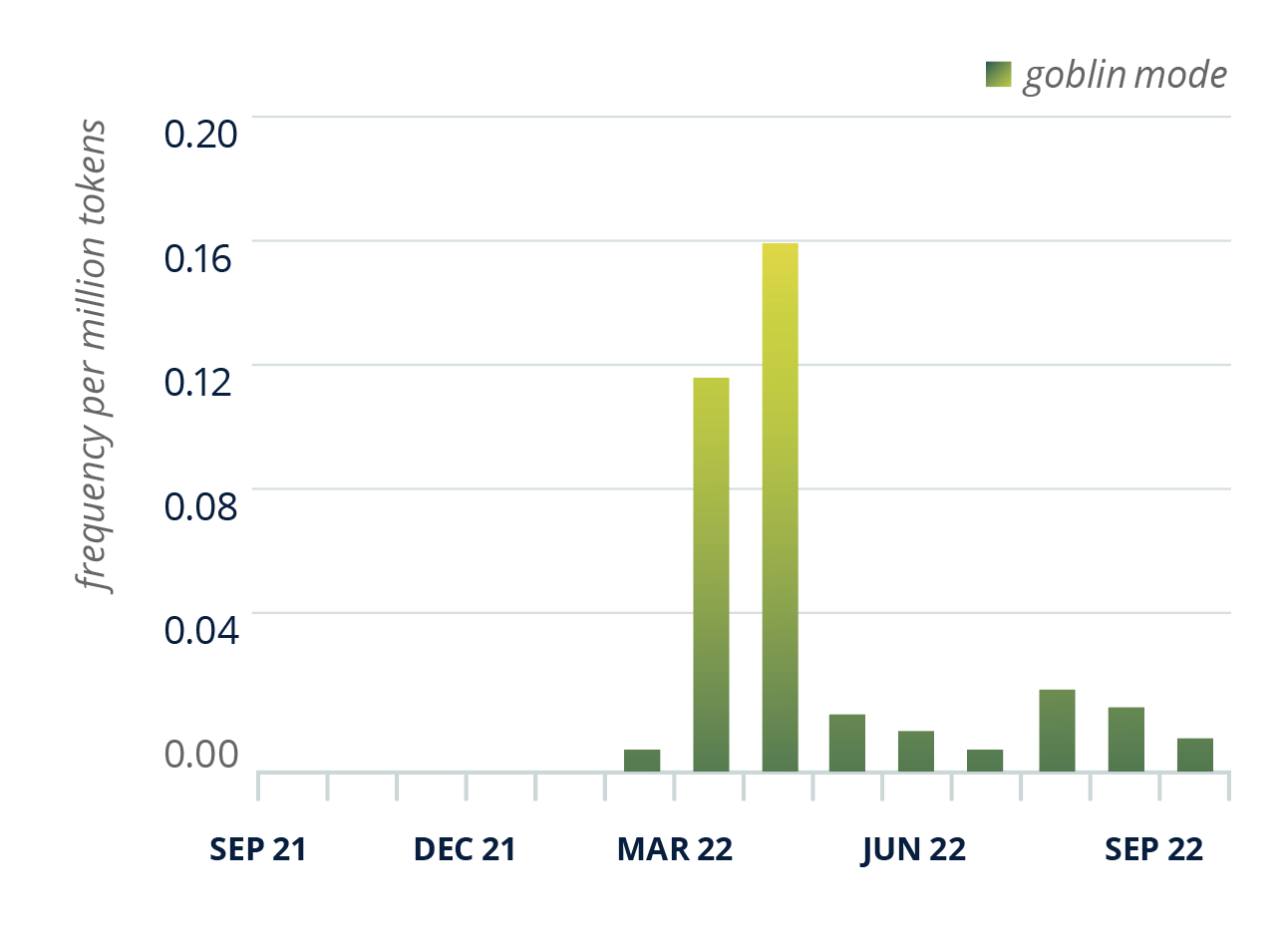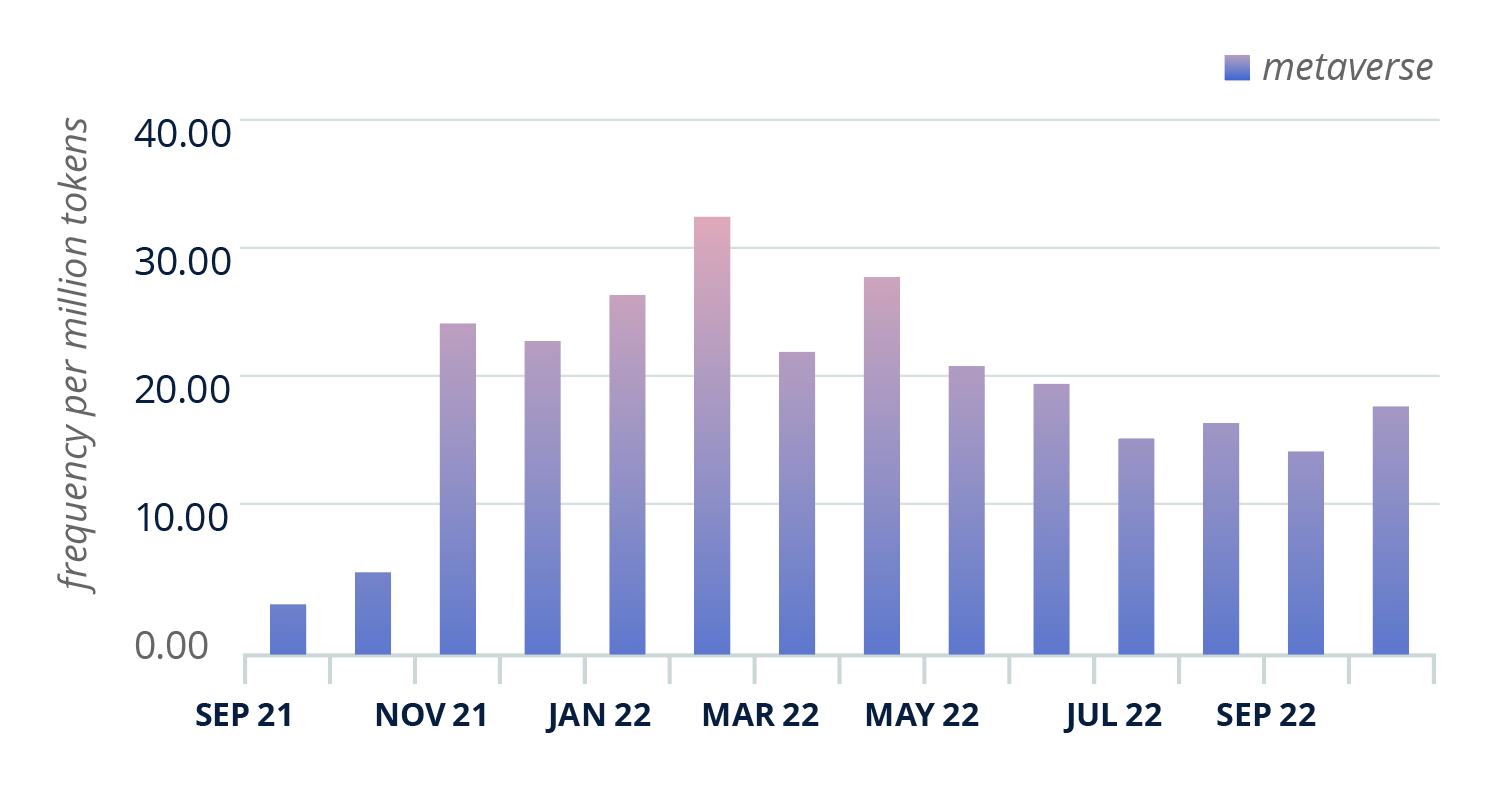Word of the Year 2022
Oxford Word of the Year 2022
The public has spoken! After opening the choice of Word of the Year up to English speakers for the first time in its history, over the last two weeks more than 300,000 people cast their vote.
The Oxford Word of the Year is a word or expression reflecting the ethos, mood, or preoccupations of the past twelve months, one that has potential as a term of lasting cultural significance. Supported by evidence of real language usage, Oxford’s editors track candidates as they emerge throughout the year, analyzing frequency statistics and other language data in the Oxford English Corpus. Previous words have included vax (2021), climate emergency (2019), and selfie (2013).
And the winner is...
Goblin mode
‘Goblin mode’ – a slang term, often used in the expressions ‘in goblin mode’ or ‘to go goblin mode’ – is ‘a type of behaviour which is unapologetically self-indulgent, lazy, slovenly, or greedy, typically in a way that rejects social norms or expectations.’
Although first seen on Twitter in 2009, goblin mode went viral on social media in February 2022, quickly making its way into newspapers and magazines after being tweeted in a mocked-up headline. The term then rose in popularity over the months following as Covid lockdown restrictions eased in many countries and people ventured out of their homes more regularly. Seemingly, it captured the prevailing mood of individuals who rejected the idea of returning to ‘normal life’, or rebelled against the increasingly unattainable aesthetic standards and unsustainable lifestyles exhibited on social media.

The Oxford Corpus lists many vivid examples of goblin mode, including “Goblin mode is like when you wake up at 2am and shuffle into the kitchen wearing nothing but a long t-shirt to make a weird snack, like melted cheese on saltines”, as quoted in The Guardian newspaper. More recently, an opinion piece in The Times stated that “too many of us… have gone ‘goblin mode’ in response to a difficult year.”
Speaking at a special event to announce this year’s approach to selecting the Oxford Word of the Year, Ben Zimmer, American linguist and lexicographer, said: “Goblin Mode really does speak to the times and the zeitgeist, and it is certainly a 2022 expression. People are looking at social norms in new ways. It gives people the license to ditch social norms and embrace new ones.”
Since the launch of the people’s choice vote, ‘goblin mode’ has captured the attention of many communities online, having been a runaway favourite on social media and within online publications, such as PC Gamer, which urged followers to “put aside [their] petty differences and vote for ‘goblin mode’.”
Casper Grathwohl, President, Oxford Languages, says:
“We were hoping the public would enjoy being brought into the process, but this level of engagement with the campaign caught us totally by surprise. The strength of the response highlights how important our vocabulary is to understanding who we are and processing what’s happening to the world around us. Given the year we’ve just experienced, ‘Goblin mode’ resonates with all of us who are feeling a little overwhelmed at this point. It’s a relief to acknowledge that we’re not always the idealized, curated selves that we’re encouraged to present on our Instagram and TikTok feeds. This has been demonstrated by the dramatic rise of platforms like BeReal where users share images of their unedited selves, often capturing self-indulgent moments in goblin mode. People are embracing their inner goblin, and voters choosing ‘goblin mode’ as the Word of the Year tells us the concept is likely here to stay.”
Further information on ‘metaverse’ and ‘#IStandWith’
metaverse (second place)
The term ‘metaverse’ describes ‘a (hypothetical) virtual reality environment in which users interact with one another’s avatars and their surroundings in an immersive way, sometimes posited as a potential extension of or replacement for the internet, World Wide Web, social media, etc.’ The first recorded use of metaverse in the Oxford English Dictionary dates from 1992, in the science fiction novel Snow Crash by Neal Stephenson.
Until late 2021, there was relatively little sustained usage of ‘metaverse’ outside of specialist contexts. By October 2022, it had increased almost fourfold from the previous year in the Oxford Corpus. While some of this increase can be attributed to the name change of social media conglomerate Facebook in October 2021, the concept of the ‘metaverse’, how we use it, and what it means for the future, has also been widely discussed. Words commonly occurring near ‘metaverse’ include Web3, virtual, NFT, crypto, build (as in ‘build the metaverse’), and vision (as ‘a vision of/for the metaverse’).

As we grapple with relatively new concepts like hybrid working in the virtual reality space, metaverse is particularly pertinent to debates about the ethics and feasibility of an entirely online future.
A worthy opponent to ‘goblin mode’, ‘metaverse’ gained voting traction with crypto communities and publications. We see the term continue to grow in use as more voices join the debate about the sustainability and viability of its future.
#IStandWith (third place)
The phrase ‘to stand with’ someone, in the context of supporting them or taking their side, dates back to the 14th century. However, the hashtag #IStandWith emerged in the first decade of the 21st century; evidence has been found dating back to 2009.
Used on social media to express solidarity with a specific cause, group, or person, ‘#IStandWith’ has been identified as a way for people to communicate their opinions and align their stances on specific events. It is how people demonstrate activism online and speak out for what they believe in.
Data from social media and the Oxford Corpus show that ‘#IStandWith’ and variants became significantly more frequent and prominent in March 2022, following the Russian invasion of Ukraine. Frequent uses this year include #IStandWithUkraine and #StandWithUkraine.
In what has been a turbulent year for many, ‘#IStandWith’ has been used to show support for a range of causes, with evidence showing a spike in internet searches in 2022 compared to 2021.
